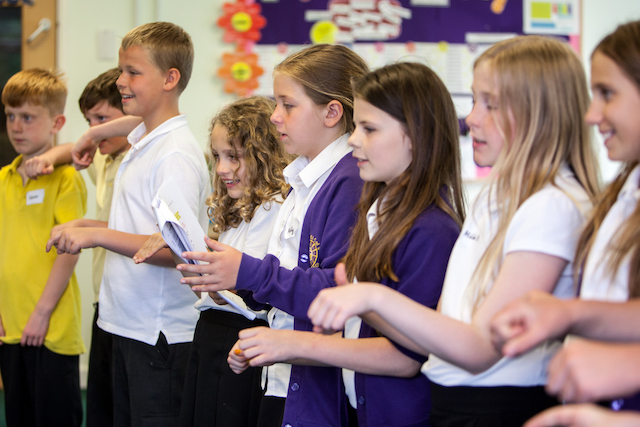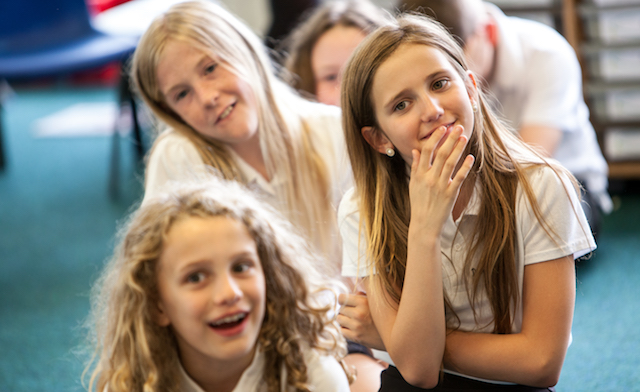November 16, 2020
Write Your Own Poem for World Nursery Rhyme Week!
Some top tips on how to start writing your very own nursery rhyme! Plus, our attempt called 'The Robot and the Moon'.
November 11, 2020
Welcome to our Creativity in the Classroom series! In this series, we share some of our favourite activities, games and challenges to stimulate creative learning on curriculum topics. All ideas come from our online teaching resource, Uno. To find even more engaging activities and interactive videos, visit the Uno website and sign up for your free trial!

Are you ready for Anti-Bullying Week 2020? Today we have a game that’s a brilliant warm-up game for your Anti-Bullying KS2 activities. It’s called ‘The Statements Game’ and it’s a really simple, but effective, way to get pupils thinking about how their behaviour can affect others.
Remember, this year Anti-Bullying Week takes place from Monday 16 – Friday 20 November. We have free access to our online teaching resource Uno throughout November, and the brilliant Anti-Bullying Alliance website has plenty of information too.

Before the fun begins, it’s a good idea to let your KS2 pupils know exactly what their role will be in this game. They’ll be following your instructions, answering questions and perhaps even being challenged a little bit. Their role is to think carefully, work alongside each other and have fun! Your role is to support them along the way.
Feel free to tailor the statements to your class and remember to reinforce strong answers to your follow-up questions. If you’re looking for a great Anti-Bullying KS1 activity, check out this Freeze Frame game!
If you’d like to learn more tips for improving Creativity in the Classroom, take a look at our online teaching resource, Uno. This easy-to-use website is packed with interactive videos and teacher guides on a wide range of topics. Please get in touch to find out more and request a free trial for your school.
November 16, 2020
Some top tips on how to start writing your very own nursery rhyme! Plus, our attempt called 'The Robot and the Moon'.
November 09, 2020
Test your pupils' knowledge of the topic and have fun with this quick World War 2 quiz for KS2 children.